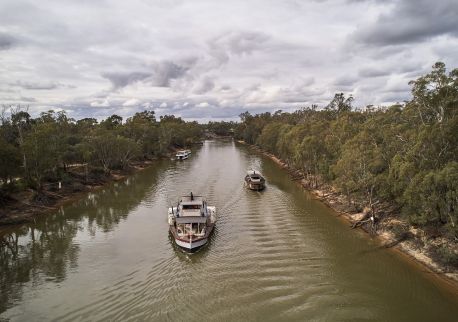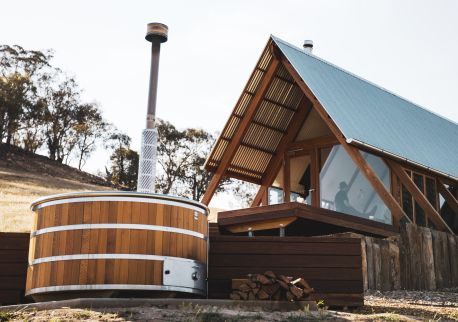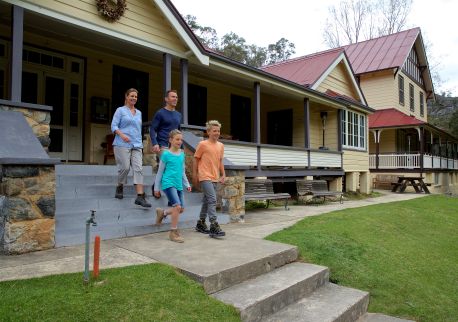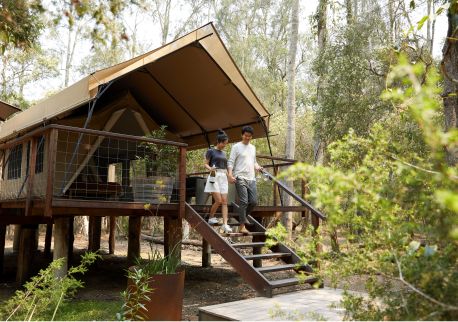Mudgee Honey Haven
Highlights
- Unique honey mead tasting steeped in ancient tradition
- Crafted with pure Australian honey for rich, authentic flavour
- Memorable, immersive experience in a charming local setting
Overview
Mudgee Honey Haven will help you immerse yourself in a truly one of a kind experience where they take you on a trip with their Honey Mead tasting that will send you on a journey you wont forget.
Mead is made by fermenting pure Australian Honey using a method as old as history, to a recipe perfected over time.
Some believe cave men accidentally discovered mead when tasting honeycomb that had been in contact with water.
It is believed that between 2,000 and 5,000 years ago the Egyptian, Greek and Roman empires made mead by fermenting honey and water with yeast. The Vikings called mead the Honeymoon drink, believing mead to be an aphrodisiac. Whatever the myth, it is something that will be embedded in your memory forever.
Accessibility
A quiet space is available at the venue/ facility
Actively welcomes people with access needs.
Adhere to The Food Authority requirements for allergy management in food preparation
Advise tour guides of the access needs of guests at the time of booking (includes pick up and drop off requirements)
Ask all visitors if there are any specific needs to be met
Caters for people who are blind or have vision loss
Caters for people who are deaf or have hearing loss
Caters for people who use a wheelchair.
Caters for people with allergies and intolerances.
Caters for people with sufficient mobility to climb a few steps but who would benefit from fixtures to aid balance. (This includes people using walking frames and mobility aids)
Employ people with disability
Have a low noise reception areas with hearing loss friendly acoustics and adequate lighting for viewing facial expressions (includes common areas which are free of background noise, background music)
Have a step free main entrance to the building and/or reception area (includes ramps or slopes with a maximum gradient of 1:14, otherwise are too steep for wheelchairs)
Have a wheelchair accessible toilet / shower and change room
Have accessible seating areas in theatrette
Have an accessible public toilet which is unlocked
Have an appropriate area for toileting an assistance dog
Have doorways which are easy to open and have lever handles (doorways 850mm or wider when open and not heavy)
Have equipment to respond to anaphylactic shock such as epi–pens and defibrillator
Have grab rails in the bathroom
Have handrails on all your stairways
Have step free access to restaurant, lounge and bar
Have TVs with captioning option
Have wheelchair accessible picnic tables (picnic tables require 720mm knee clearance and 800mm maximum height)
Modify your cooking and cleaning practices to cater for people with food allergies or chemical intolerances (could include menus with meals free from: nuts, dairy, seafood, eggs, gluten etc)
Offer a range of contact methods for receiving complaints
Offer multiple options for booking - web, email, phone
Provide information in large print
Provide seating in common areas including reception area
Provide toiletries which are chemical and fragrance free (if requested)
Train your staff in customer service for people with vision loss (training would incorporate way finding and communicating with people with vision loss)
Train your staff in communicating with people who are deaf or have hearing loss
Train your staff in communicating with people with learning or behavioural challenges
Train your staff in disability awareness
Train your staff to respond to allergic reactions
Use easy read fonts in your signage and communication materials (Helvetica and Arial)
Use non-slip tiles in the bathroom or slip resistant matting
Use organic (chemical and fragrance free) cleaning products
Use Plain English / easy read signage and information (includes menus and emergency information)
Website meets WCAG 2.0 accessibility standards
Welcomes and assists people who have challenges with learning, communication, understanding and behaviour. (includes people with autism, intellectual disability, Down syndrome, acquired brain injury (ABI), dyslexia and dementia)


























